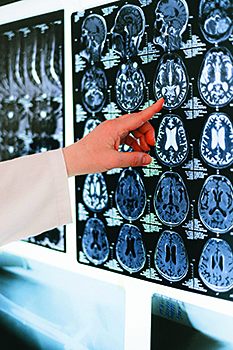 No athlete, professional or amateur or otherwise, is immune from injury. Most athletes recognize the risk for injury is always present, but the thrill of competition and challenging oneself physically is enough to relegate injury concerns to the back burner.
No athlete, professional or amateur or otherwise, is immune from injury. Most athletes recognize the risk for injury is always present, but the thrill of competition and challenging oneself physically is enough to relegate injury concerns to the back burner.
Sports injuries may be part of the competitive athletics equation, but that does not make them any easier to handle when they occur. One of the more serious injuries that can occur when playing sports does not involve fractures or sprains. Concussions are brain injuries that can cause temporary loss of normal brain function. March is Brain Injury Awareness Month, and learning the signs of concussions can save lives.
The American Association of Neurological Surgeons reports that concussions are caused by direct trauma to the head. Potential causes of such trauma can be a fall or a blow to the head. Involvement in a motor vehicle accident also can cause concussion.
Concussions affect non-athletes as well as athletes, which is important for people from all walks of life to recognize. However, athletes who compete in contact sports like football, ice hockey, rugby, and soccer should be especially mindful of concussions.
That's because contact sports tend to have the highest concussion rates. Concussion rates can be hard to tabulate, as many athletes may suffer mild concussions and never report any issues to parents or coaches.
However, a 2019 study published in the journal Pediatrics found that, between the 2013-14 and 2017-18 school years, the three sports with the highest concussion rates were boys' football, girls' soccer and boys' ice hockey. Of course, adult athletes also can suffer concussions, which underscores how important it is that all individuals, and especially athletes competing in contact sports, learn to recognize the symptoms of a concussion.
With that in mind, the AANS notes these are some common symptoms of concussion:
• Confusion
• Headache
• Vision disturbances (double or blurry vision)
• Dizziness or imbalance
• Nausea or vomiting
• Memory loss
• Ringing ears
• Difficulty concentrating
• Sensitivity to light
• Loss of smell or taste
• Trouble falling asleep
Concussions should be taken seriously, and it's important to note that most people fully recover after a concussion. However, the AANS urges people to seek immediate medical attention if symptoms have not gone away within 10 to 14 days. In addition, certain situations that can arise after suffering a concussion should be brought to the attention of a physician. Such situations include:
• Headache worsens or does not go away
• Speech is slurred, and feelings of weakness, numbness or decreased coordination present
• Significant nausea or repeated vomiting
• Seizures
• Loss of consciousness
•Inability to wake up
• Symptoms worsen at any time
• History of multiple concussions
Concussions are serious brain injuries that should not be taken lightly. Athletes and parents of young athletes should discuss concussion prevention strategies with coaches and report any issues to a physician immediately.
More information about concussions can be found at aans.org.

 How to resolve AdBlock issue?
How to resolve AdBlock issue? 









